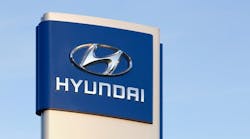Get Rid of Child Labor in Hyundai's Supply Chain Say US Lawmakers
Thirty-three lawmakers called on the Department of Labor to "rid Hyundai's supply chain of child labor".
A group of 33 lawmakers called on the Labor Department on Feb. 10 to “rid Hyundai’s supply chain of child labor” amid ongoing concerns that the carmaker is allegedly using suppliers that employ children.
The first accusation of child labor in Hyundai’s supply chain came in August of 22, regarding auto parts manufacturer SMAT Alabma’s plant employing children as your as 12. In August a second parts supplier, SL Alabama CC was accused of employing minors in “oppression child labor, which means that the children were under 18 and were exposed to hazardous environments.
In October Hydunai COO Jose Munex said it would off its connections to subsidiary suppliers that have been found to use child labor and would investigate the rest of its U.S. supply chain.
But those efforts haven’t satisfied the lawmakers. “Clearly, there is a systemic effort within the Hyundai supply chain to recruit child labor from abroad, undermining workers in other parts of the U.S. auto industry. And it must be addressed immediately,” the lawmakers, led by Rep. Dan Kildee (D-Mich.), said in a letter to Labor Secretary Marty Walsh.
The full letter is as follows:
We write to you in light of disturbing ongoing reports of child labor at auto parts suppliers for Hyundai Motor Group. We appreciate the ongoing investigations of the U.S. Department of Labor’s (DOL) Wage and Hour Division into this matter, but more must be done to eliminate child labor from the U.S. auto supply chain.
In July 2022, news outlets reported that SMART Alabama LLC, a subsidiary of Hyundai, was employing child workers as young as 12 years old. Following these reports, DOL investigated SL Alabama LLC, another Hyundai supplier, and found they were also using child labor, resulting in a court order against SL Alabama LLC and fines from DOL for their violations. We applaud you for taking swift and proper enforcement action and encourage further action after reports of the continued use of child labor.
New reports allege additional automotive parts suppliers for Hyundai, mainly in Alabama, are also suspected of child labor violations. Many of these children are immigrants recruited from Central America, working under fake names in dangerous conditions in manufacturing plants, some driving forklifts and operating welding equipment, and receiving serious workplace injuries.
According to reports, children are actively recruited from Central America and employed through third-party staffing agencies in an attempt to cover up these disturbing activities. According to reports, when adult workers in the plants tried to raise concerns about children working there, they were ignored. This is shocking, disturbing and has no place in the U.S.
Earlier this year, Hyundai publicly committed to severing ties with its suppliers in its U.S. supply chain that were found to use child labor. We are concerned that Hyundai, at DOL’s suggestion, reversed course on this commitment and will not cut ties with its Alabama suppliers that use child labor. Clearly, there is a systemic effort within the Hyundai supply chain to recruit child labor from abroad, undermining workers in other parts of the U.S. auto industry. And it must be addressed immediately.
It is abhorrent this activity continues even after a DOL investigation. We urge DOL to take immediate action to rid Hyundai’s supply chain of child labor and hold those responsible to the fullest extent of the law. We look forward to working with you on these issues.
Hyundai said in a statement that it was disappointed the letter did not acknowledge the “comprehensive actions we have taken in collaboration with the Department of Labor to address the allegations of underage workers at certain suppliers.”
“Hyundai is confident there are no current underage labor issues at our tier 1 suppliers,” the company said. “Consistent with the standards and values to which we hold ourselves as a company, we mandate that our suppliers and business partners strictly adhere to the law, and we remain vigilant in the oversight of our supply chain to ensure non-compliance never happens again.”
